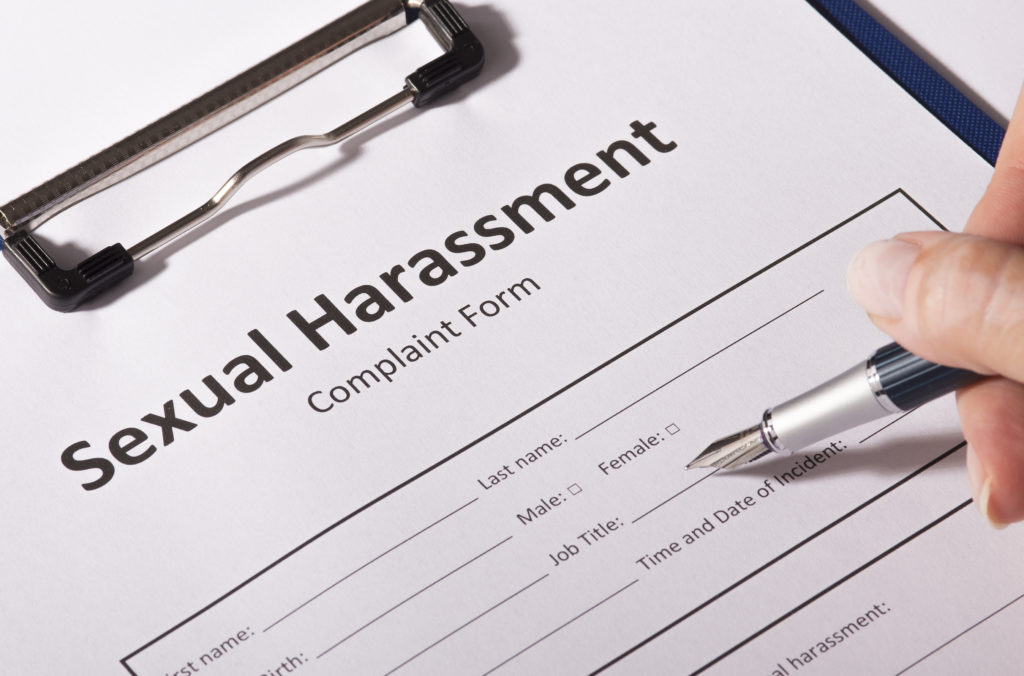
A recent survey by TUC into sexual harassment in the workplace has highlighted the scale of the issue. It found that nearly two-thirds of 18 to 24-year-olds surveyed had suffered sexual harassment at work with a third of women of all ages having been subjected to unwelcome jokes, while one in four received sex-related comments about their body or clothes.
The study of 1,500 women found one in four had been subjected to unwanted touching and one in eight said someone had tried to kiss them. They were also still subjected to unwelcome jokes, verbal advances, suggestive remarks and even demands for sexual favours in the workplace.
According to the study in most cases, the perpetrator was male, with nearly one in five women saying it was their line manager, or someone with direct authority over them.
TUC general secretary Frances O’Grady said: “How many times do we still hear that sexual harassment in the workplace is just a bit of ‘banter’?
“Sexual harassment is undermining, humiliating and can have a huge effect on mental health. Victims are often left feeling ashamed and frightened. It has no place in a modern workplace, or in wider society.
It has also been disclosed that many of the women in the survey did not feel their complaints were handling matters properly. This is very surprising as the sorts of conduct above can lead to fairly significant awards against companies which are complicit with such behaviour, either by turning a blind eye or by failing to address the conduct.
Award for trainee solicitor’s injury to feelings not excessive
Only last week an Employment Tribunal awarded £14,000 for injury to feelings of a trainee solicitor who suffered sex discrimination during a placement at a Bolton law firm. The Employment appeal tribunal found that this award was appropriate.
The trainee brought claims after having tolerated and had suffered some 40 of sexual harassment by Mr A a principal of the company, ranging from asking her to go out to the cinema, talking about installing a bed in the office, attempting to hug her, touching her arms, squeezing and rubbing her hands when shaking hands.
The tribunal had ruled that the claimant was a young woman at the start of her professional career and the respondent was an older man in a position of power and authority.
It noted that there was evidence of visits to the claimant’s GP resulting from stress and anxiety because of the harassment.
The tribunal awarded £14,000 compensation for injury to feelings, along with aggravated damages of £4,000 and compensation for loss of earnings of £2,111. It also recommended that the principal attend equal opportunities training.
The company appealed claiming that the award of £14,000 was ‘manifestly excessive’ for conduct which was’ no more than modestly obnoxious and might properly be characterised as gauche and insinuating rather than aggressive, and was of brief duration’.
However in this case, the employment appeal tribunal said it did not accept that description.
The principal ‘did not treat her as a worker; from the first meeting in the job interview he treated her in a demeaning and disrespectful manner as a woman evidently to be present in the office for his pleasure and gratification rather than to work and develop her skills as a lawyer.’
Discrimination on the grounds of race, disability, sexual orientation or belief, age or marriage (amongst others) can lead to significant damages for which not only the company but also the perpetrator can be made liable. Employers should seek advice as soon as possible where they are aware of allegations and even where there is no formal complaint, but they know about such conduct. A failure to address discrimination and harassment in the workplace may open up risks which can prove extremely expensive.
